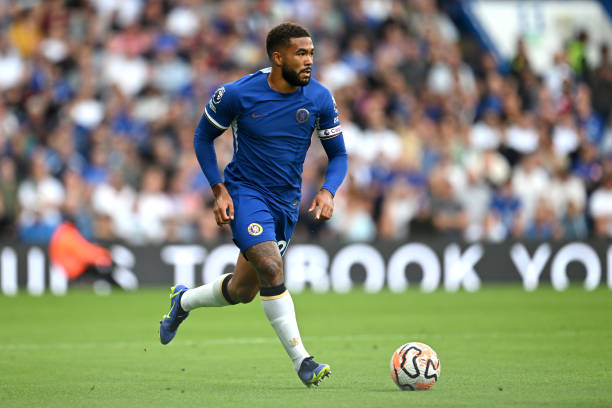Football is a very lucrative sport, and all the principal stakeholders in the round-leather game make massive profits from it. There are huge amounts of money being made through football annually.
The English Premier League (EPL) is the most watched sports league in the world, with over 3 billion people across 188 countries tuning in to watch football Premier League matches.
Football clubs in England have been playing in the English Football League (EFL) since 1888, but in 1992, the First Division clubs broke away from the EFL to form the English Premier League (EPL). The Premier League has witnessed an astronomical rise in revenue since.
The EPL built an impressive business model around broadcasting rights. The broadcasting money is the largest source of income for EPL teams, followed by commercial & sponsorship revenue.
While matchday revenues still remain important, it has become less significant than the other two aforementioned sources in recent years.
In this article, TOP SOCCER BLOG looks at how the Premier League generates income.
Broadcasting rights
Broadcasting rights deals have become an important source of income for football teams. The broadcasting income of the Premier League is the envy of the other leagues. TV rights are the largest source of revenue for the EPL.
In the Premier League, the league owns the TV broadcasting rights of all games. They sell these rights to the highest bidders, such as Sky Sports, BT Sport, DAZN, etc.
These broadcasters usually go through a bidding process to become the official rights-holder of the games and ultimately charge subscription fees to their audience and placement fees to advertisers.
That is, after purchasing rights from the EPL, the broadcasters, in turn, sell rights to smaller companies, with advertisers and companies leveraging on the popularity of the league to promote their own brands.
While the general thought is that broadcasting money is equally divided between all the 20 clubs, that’s not the case.
NOTE: There are foreign and domestic TV right deals.
The distribution of the proceeds from the domestic TV rights is set up as follows: 50% of the proceeds are shared equally among the 20 clubs. 25% of the proceeds are allocated to what is called “merit fees,” — which is determined by the clubs’ position in the league at the end of the season.
As for the foreign broadcasting rights, all of the revenue is shared to clubs equally, but as from the 2019/2020 season, any increase will be distributed to clubs based on their position in the league table.
Also, clubs get money from TV deals by getting payments based on the order of which teams attract the most views.
It was estimated that at the end of the 2019/20 season, Liverpool (the champions) earned around £139.1 million from TV, while Norwich (the bottom club) earned around £92.7m.
This implies that even the smaller clubs earn a lot from TV rights too.
Thus, the majority of Premier League revenue is generated through broadcasting fees — which raked in approximately £2.3 billion in the 2019/20 season.
From 2016 to 2019, the Premier League reached an exponential figure of £5 billion in the value of TV rights. This was a 70% growth of revenue compared to the previous 3 years (2013 to 2016).
Most the money gotten from broadcasting rights is what is used to pay the competing teams as the EPL prize money.

Commercial Revenue
Just like any other sport in the world, football relies heavily on commercial revenues — which include sponsorship and endorsement deals.
But unlike the broadcasting income, this source of revenue is less dependent on the results on the pitch.
For example, despite being the most dominant force in the EPL in the last decade, Manchester City still can’t generate the same commercial income as its rivals, Manchester United.
This is simply because of United’s superior commercial value.
In the 2019/20 season, the EPL generated £1.6 billion from commercial and sponsorship deals.
Matchday Revenue (Box Office)
Matchday revenue is the revenue generated by the clubs from their box office sales, including season tickets.
Each PL team hosts 19 league fixtures throughout a season, but of course, the incomes vary from one club to the other, majorly because of two reasons.
First, the capacity of the stadiums of each club is different. For instance, Manchester United’s Old Trafford stadium has a 76,000 capacity, while Leicester City’s King Power Stadium has a 32,000 capacity.
Secondly, the importance of a match will significantly determine the price of the matchday ticket. Manchester United vs. Liverpool would surely exceed the entry fee for Brentford vs. Nottingham Forest.
In the 2019/20 season, matchday revenue generated to £599 million.
Subscription Services
With technological improvements and new media developments, subscription services are giving TV broadcasters a run for their money. The Premier League is now able to reach more viewers with the use of these streaming services — leading to more revenue.
Amazon has been making moves in the football league broadcasting landscape, and in 2018, it secured rights to 20 EPL matches per season.
Amazon bought the 20 matches a season right for a total fee of £90 million.
Facebook has also been making moves by buying rights to stream all of the new cycles in Cambodia, Laos, Thailand, and Vietnam.
It will be interesting to see how tech giants will be involved in future bidding wars with broadcasters. Some broadcasters are already planning ahead.
For example, the NENT Group paid around £2 billion for the exclusive rights to broadcast EPL games in Scandinavia from 2022 to 2028.
These are the major ways that the Premier League makes money and then share it with the clubs.
For the 2021/22 season, each club was given an equal share of £79 million from the TV rights deals, with an extra facility fee depending on how many times their matches got broadcast.
They then receive a £5.6 million share of the Premier League’s combined commercial income.
Here’s an infographic on cheapest and most expensive countries in the world to watch the Premier League.

In summary, here’s how the Premier League makes money. They do this by selling broadcasting or TV rights, earning through commercial sponsorships, collecting matchday revenue, and through subscription services.






